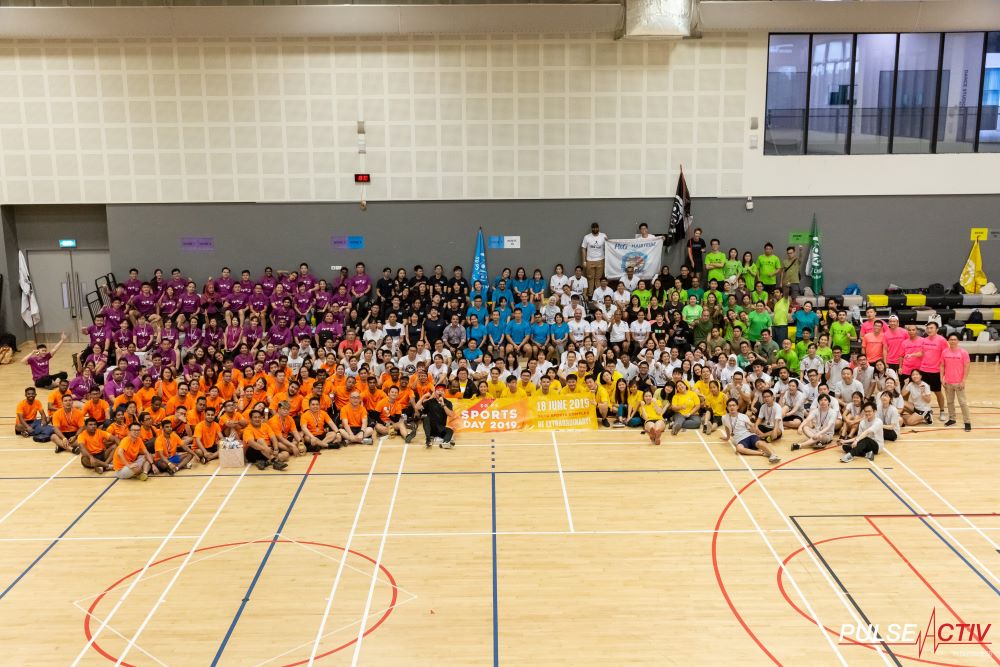Organizing a Team Building Event vs. Hiring a Vendor
Team building events are integral to enhancing employee morale, fostering collaboration, and improving communication within an organization. Companies often face a choice between organizing these events in-house or hiring a professional vendor. Both approaches offer unique advantages, and the decision ultimately depends on the specific needs, resources, and objectives of the company. Here’s a comprehensive comparison between organizing a team building event yourself and hiring a vendor, highlighting the benefits of each method.
Organizing a Team Building Event In-House
Pros:
1. Save on event management fees:
Organizing an event internally allows for meticulous cost management. Companies can allocate resources efficiently, ensuring that every dollar spent contributes directly to the event’s success. This approach is particularly advantageous for organizations with limited budgets, as it avoids the additional fees often associated with hiring external vendors. By managing costs in-house, companies can prioritize essential elements and minimize unnecessary expenses, leading to a more economically sustainable event.
2. Flexibility:
Planning an event internally provides a high degree of flexibility, enabling organizers to make real-time adjustments as needed. If certain aspects of the event aren’t working as planned, changes can be implemented swiftly without the need for external consultation. This adaptability is crucial for addressing unforeseen challenges and ensuring that the event remains engaging and effective. The ability to modify plans on the fly ensures that the event can evolve to meet the dynamic needs of the team.
3. Team Involvement:
Involving team members in the planning process itself serves as a valuable team-building exercise. Collaboration on event planning fosters a sense of ownership and investment among employees, enhancing their engagement and commitment. This participatory approach encourages creativity, collective problem-solving, and shared responsibility, all of which contribute to a stronger, more cohesive team. The process of organizing the event becomes a microcosm of effective teamwork, reinforcing the very skills and relationships that the event aims to build.
Cons:
1. Time and Effort:
Organizing an event internally demands significant time and effort from employees, which can be overwhelming, particularly for those with full workloads. The planning process encompasses numerous tasks, including ideation, logistics, coordination, and follow-up, each of which requires careful attention and dedication. Balancing these responsibilities with regular work duties can strain resources and divert focus from core business activities.
2. Expertise:
Many companies lack the specialized knowledge and experience necessary to design and execute engaging and effective team-building activities. Without expertise, the risk of subpar events increases, potentially leading to outcomes that fail to meet the desired objectives. The absence of professional insights can result in activities that are not sufficiently challenging, engaging, or relevant to the team’s needs, ultimately diminishing the impact of the event.
3. Risk of Bias:
Internal planners may inadvertently introduce biases or limited perspectives into the planning process, leading to activities that do not appeal to all team members or fail to address underlying team issues. Personal preferences, existing relationships, and internal dynamics can influence decisions, potentially excluding certain voices or reinforcing existing silos. Ensuring that the event is inclusive, equitable, and effective for the entire team can be challenging without an objective, external viewpoint.
Hiring a Professional Vendor
1. Expertise and Experience
Professional vendors bring a wealth of experience and specialized knowledge to the table. They are well-versed in designing and executing team-building activities that are both engaging and effective. Their expertise allows them to create innovative and impactful experiences that might not be achievable through internal planning alone. Vendors have a deep understanding of what works in various contexts and can tailor their offerings to meet the specific needs of the client.
2. Time-Saving
Outsourcing the planning and execution of a team-building event to a professional vendor significantly reduces the time and effort required from the company’s staff. This delegation allows employees to focus on their core responsibilities without the added burden of event organization. The vendor handles all aspects of the event, from initial planning and logistics to execution and follow-up, ensuring a seamless and hassle-free experience for the client.
3. Diverse Activities
Vendors often offer a wide range of activities, from traditional team-building exercises to more innovative experiences like Pulse Activ’s Amazing Race-inspired events. This variety ensures that there are options to suit different preferences and objectives, providing a richer and more engaging experience for participants. The diverse range of activities can cater to different interests, skill levels, and team dynamics, enhancing the overall impact of the event.
4. Objective Perspective
An external vendor brings an objective perspective to the planning and execution of the event. They can identify issues and opportunities that internal planners might overlook, ensuring that the activities are inclusive and engaging for all participants. This impartial viewpoint helps to address underlying team issues and fosters a more cohesive and collaborative environment. The vendor’s objective perspective can lead to more effective and meaningful outcomes, as they can see the team dynamics from a fresh and unbiased angle.
Conclusion
Choosing between organizing a team-building event in-house and hiring a professional vendor depends on various factors, including budget, time, resources, and desired outcomes. For smaller companies with limited resources, organizing internally can be a cost-effective and flexible option. However, for larger organizations or those seeking specialized, high-impact experiences, hiring a professional vendor can provide the expertise and support needed to achieve their goals.
Ultimately, the success of a team-building event hinges on careful planning, clear objectives, and a genuine commitment to fostering a positive and collaborative team environment. Whether you choose to organize the event internally or enlist the help of experts, the key is to create an experience that resonates with your team and strengthens the bonds that drive your organization forward.
To head back to read another article in our blog, click here.

